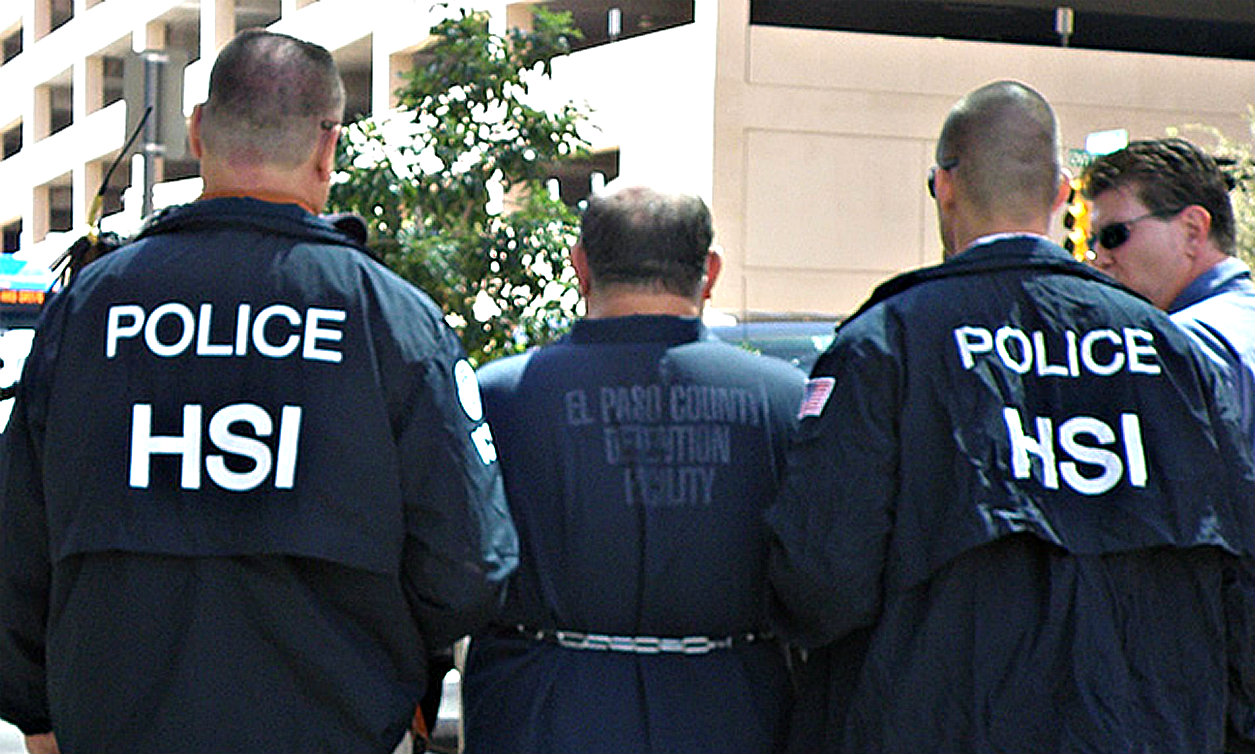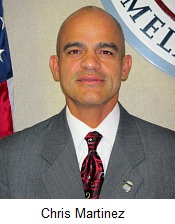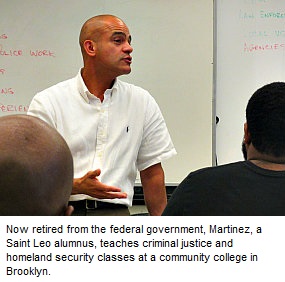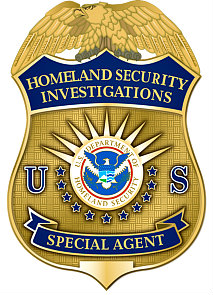Criminal Justice Careers: Becoming A Special Agent
A former ICE agent shares insight into becoming a special agent in our series of criminal justice careers blogs.

A former ICE agent shares insight into becoming a special agent in our series of criminal justice careers blogs.

 Drug smuggling, money laundering, terrorism threats, child exploitation and human trafficking investigations.
Drug smuggling, money laundering, terrorism threats, child exploitation and human trafficking investigations.
These are just some of the many tasks U.S. Immigration and Customs Enforcement (ICE) Homeland Security Investigations (HIS) special agents deal with daily.
Saint Leo alumnus Christopher Martinez spent 27 years in a federal law enforcement career with ICE/HSI that took him across the United States and abroad in Central and South America.
From 2004-07, Martinez was the ICE/HSI attaché for Central America. Based in Panama, he was the law enforcement adviser on all ICE and Department of Homeland Security matters to U.S. ambassadors in seven Central American countries.
Martinez began his law enforcement career in 1987 after serving five years in the U.S. Navy as an air traffic controller. He worked for ICE/HSI and its predecessor, the U.S. Customs Service, starting in Miami at the height of the drug war investigating cases related to narcotics smuggling, money laundering and customs fraud. He held investigator and management positions overseeing financial cases and led a team of special agents who investigated human trafficking and human smuggling.
During his career with ICE/HSI, Martinez completed an online degree program with Saint Leo, earning a master of arts in education in 2008. He retired from the federal government last year. 
Martinez now teaches homeland security, white collar crime, multicultural policing and corrections at Kingsborough Community College in Brooklyn while pursuing a Ph.D. in homeland security policy and leadership.
Martinez gave students in Saint Leo's online criminal justice degree program an idea of what might await them in a federal law enforcement career as a special agent when spoke at a Center for Online Learning Leaders in Industry webinar. (Access an archived version of the entire presentation here.)
Here are some thoughts from Martinez about a career with ICE/HSI.
Martinez: When you say you work for ICE/HSI, people automatically think immigration or deportation. Actually, that is managed by Enforcement and Removal Operations, a division within ICE/HIS, and it's only part of the agency's function.
ICE/HSI is part of the Department of Homeland Security, which is charged with preventing terrorism attacks and reducing vulnerabilities to terrorism.
It includes 22 agencies in seven directorates, including ICE/HSI, Customs and Border Protection (CBP), Transportation Security Administration (TSA), Federal Emergency Management Agency (FEMA), the U.S. Secret Service USSS), Citizenship and Immigration Services (USCIS) and the U.S. Coast Guard (USCG).
ICE/HSI was created in 2003 to prevent terrorist attacks and be the pre-eminent law enforcement agency. Under ICE is Homeland Security Investigations (HSI), which is the agency where I worked. HSI deals with human trafficking, money laundering, smuggling and cyber investigations.
Martinez: On an average day, ICE/HSI agents will make: 62 administrative arrests on immigration-related violations; 22 criminal arrests on immigration-related violations; 42 arrests on customs violations; and 11 currency seizures, totaling more than $1 million a day. They will participate in 27 drug seizures resulting in the seizure of 7,250 pounds of marijuana, 968 pounds of cocaine and 7 pounds of heroin. And they will make grand jury appearances that result in the indictments of 34 people and companies a day.
Martinez: Your education, training, background, personality, technical skills and communications skills all affect how successful you will be undercover. You have to be able to negotiate and feel comfortable walking away without consummating the deal. You also need to prepare yourself for paperwork.
As a federal criminal investigator, I spent more time writing about my investigation than actually investigating. We have a saying, 'If you do not write it down, it did not happen.' Everything must be documented in order to defend your actions in a court of law.
Martinez: If you are thinking about federal work, your first step is to create an account on USAjobs.gov. About 90 percent of the agencies list positions there. You should have a college degree. It is also beneficial, although not mandatory, if you speak a second language.
 Additionally, you should attend job fairs if your college offers them, so you can network and collect information from different agencies.
Additionally, you should attend job fairs if your college offers them, so you can network and collect information from different agencies.
And you need to work. Many of the successful applicants I have seen over the year were in their mid- to late-20s and had held various jobs since college.
Interviewers often ask candidates situational questions to see how they react in different scenarios and deal with diverse individuals, and applicants who had experience dealing with the public did well answering them.
These types of jobs require employees who can both lead and follow and perform at a high level, no matter what the task. So we look for individuals who have demonstrated this through life experience, which doesn't necessarily mean they have been a law enforcement officer at the local level.
Martinez: Sports, family and good time management skills helped. I played softball, hockey and football. I played in the Police and Fire Games in Florida and California and the World Police and Fire Olympics.
I also tried to keep work in perspective. Every year while my five children were growing up, my wife and I planned a family vacation as well as a getaway for just the two of us. These were key building blocks for family and spousal relationships that lowered stress and allowed me to perform at a high level while away from home working.
Martinez: Be well-rounded and challenge yourself. Push your mind and body to the limit to see if you have anything left. Learn to see things from others' perspectives. It makes all the difference.
 What was it like to work for ICE/HSI?
What was it like to work for ICE/HSI?Martinez: I had the time of my life. I was able to see much of the United States and Central and South America conducting investigations and advising high-level host country officials.
It was gratifying and humbling.
What questions do you have about breaking into a career as a special agent?
Image Credits: Courtesy ICE and Chris Martinez